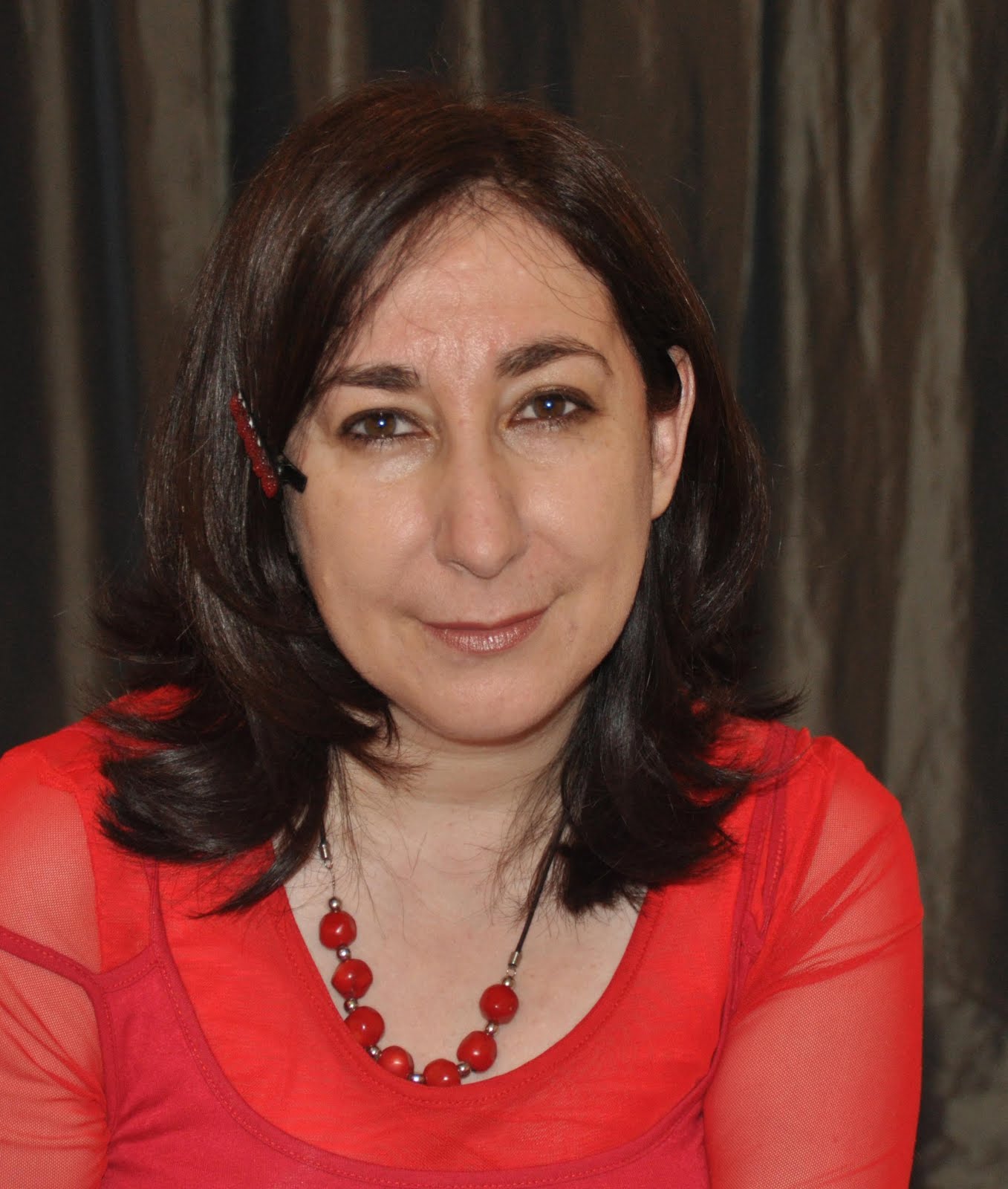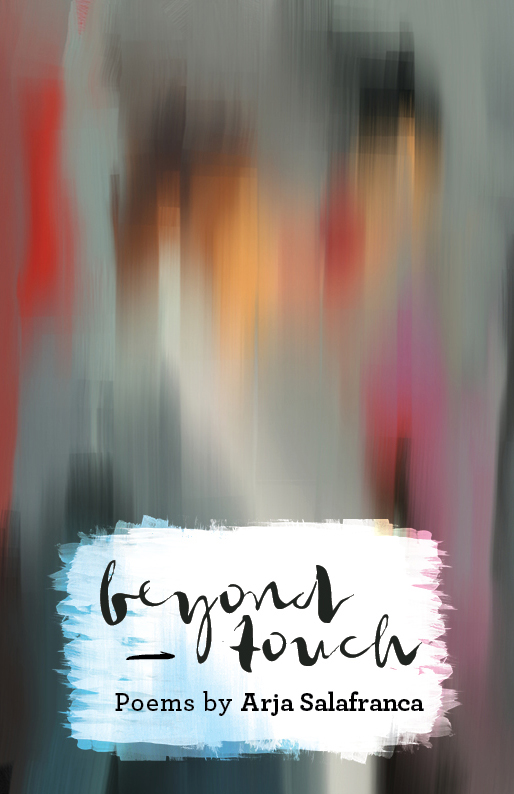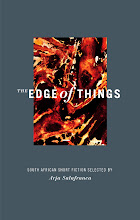Freedom is a man with one arm,
a happy smile showing perfect white teeth,
a man who answers the phone in Maintenance with a chirp in his voice.
I am asking for my window to be raised.
After years of being shut against the noise and chaos of the city
it’s rusty and won’t budge.
But Freedom can’t help, will have to call someone.
I only have one arm, his smiling voice says.
Hurriedly, I put some levity in my voice too.
Ok, thanks, whenever.
But no-one ever comes to fix the window.
Some accident in a lift shaft, says the secretary.
He was alone in the lift, had his arm out,
the lift suddenly fell, his arm ...
Workers’ compensation.
Months later I still see Freedom walking
around the building, face still set in an endless smile,
arm still bandaged, the stump ends below the elbow.
Sometimes it dangles, the bandages crisp and white.
Sometimes he uses it rakishly, crooking into the corner of his waist,
and always that smile as he saunters around the building, helps out
where only one arm will do.
(Published on African Writing Online)
Thursday, January 7, 2010
I'll always miss dreaming my dreams with you
Marianne Faithfull on YouTube takes me back.
It’s the 70s, green eye shadow colours her lids
and her blonde hair is flipped sweetly back.
Swaying gently, she’ll always miss
dreaming her dreams with you.
Saying, someday she’ll get over you.
Your birthday’s in two days.
Forty.
Did you ever think you’d reach that age?
I imagine you with two kids, a wife,
in the wintry north of Canada.
Takes me back.
The night we celebrated
your twenty-seventh in an Italian restaurant
and had carrot cake with your family after.
The only birthday of yours we celebrated together.
How many since?
I doubt you count, or know any more.
I’ll always miss dreaming my dreams with you.
(Published on African Writing Online)
It’s the 70s, green eye shadow colours her lids
and her blonde hair is flipped sweetly back.
Swaying gently, she’ll always miss
dreaming her dreams with you.
Saying, someday she’ll get over you.
Your birthday’s in two days.
Forty.
Did you ever think you’d reach that age?
I imagine you with two kids, a wife,
in the wintry north of Canada.
Takes me back.
The night we celebrated
your twenty-seventh in an Italian restaurant
and had carrot cake with your family after.
The only birthday of yours we celebrated together.
How many since?
I doubt you count, or know any more.
I’ll always miss dreaming my dreams with you.
(Published on African Writing Online)
You're only ten weeks old
You’re only ten weeks old,
and yet you were born
thirteen years ago,
out of the death of one relationship,
a cat was acquired. A birthday gift.
Then another. A cat unloved looking for a home.
Then you, escaping life as a feral,
reared away from your wild mother.
But I waited, how long,
thirteen years, I counted the other day.
You had your genesis then, in the break-up
with a man allergic to your kind.
What would we have done?
But we didn’t do anything, and
instead you emerged
all these years later, black and white and pink.
But you take me back.
I look at you and remember him,
the man who could not tolerate cats.
Knowing how different life would have been.
You wouldn’t be here.
I wouldn’t be wondering.
Perhaps I’d be sprouting a wedding ring,
or divorce papers.
Instead, ten weeks off, pushing into life,
two days to his birthday,
I remember your birth thirteen years ago.
(Published on African Wrting Online)
and yet you were born
thirteen years ago,
out of the death of one relationship,
a cat was acquired. A birthday gift.
Then another. A cat unloved looking for a home.
Then you, escaping life as a feral,
reared away from your wild mother.
But I waited, how long,
thirteen years, I counted the other day.
You had your genesis then, in the break-up
with a man allergic to your kind.
What would we have done?
But we didn’t do anything, and
instead you emerged
all these years later, black and white and pink.
But you take me back.
I look at you and remember him,
the man who could not tolerate cats.
Knowing how different life would have been.
You wouldn’t be here.
I wouldn’t be wondering.
Perhaps I’d be sprouting a wedding ring,
or divorce papers.
Instead, ten weeks off, pushing into life,
two days to his birthday,
I remember your birth thirteen years ago.
(Published on African Wrting Online)
The English Cemetary
Catherine Charlotte Anne Eliza,
Graeme Hepburn,
and Henrietta Augusta,
dead, within months of each other.
Dead at two- and four- and nine-years-old,
within the dreadful year of 1851 going into 1852.
Beloved children of Patrick and Mary,
the words are still firmly chiselled, so clear and so
legible more than 150 years later
as I wonder through.
Dead and buried in the cemetery for
non-Catholics of long ago.
In times past they would have been
buried upright on the beach,
washed to sea at night, pecked by gulls,
forgotten.
Kicking through the hot Málaga morning,
trying to make sense of yet another season
in the city of my birth, I step into the
English cemetery. A quiet in the heart of this now
roaring place where they’re now digging up the earth
to make an Underground.
I feel almost peaceful.
I find the graves of the writer Gerald Brenan,
amigo de España reads the gravestone.
Friend to Spain, the words are touching,
as though Spain were reaching out,
vulnerable, wanting to be liked.
His wife, dead in 1968,
‘Fear no more the heat of the sun’,
born in Malta, Gerald Brenan dies in Málaga,
described forever more as an escritor inglés, the
English writer.
Does language always define your nationality?
I wonder too, wandering. Kicking pebbles,
the ground is hard, tough, briny, the sun and
soil do not produce a natural green lawn
in this part of the world.
An urn lies empty beside Brenan’s grave.
Joseph Bertram Griffin dies at the age of forty-eight
in Torremolinos in 1968.
It’s not just in past centuries that people die young.
This time though, instead of a deadly childhood disease,
might it have been cancer?
The grammar is odd: ‘The love of your little Zizi,
the husband you was’.
A plaque for John Bevan who dies in 1816,
too early, before the formation of this cemetery.
Geoffrey Herbert Bruno is buried here in 2000,
even now the grounds are being used.
I look at the apartment blocks,
awnings pulled down against the heat,
and the familiar washing flutters from the lines.
Do they even notice the cemetery now, a fixture,
do they subconsciously avoid it at night,
because, after all, you never know?
What will it take to become Spanish?
In the shop I use my own language again,
it spurts out like vomit.
Effortlessly and without having to think.
The woman who answers me is herself a hybrid:
an Italian American who loves and lives in Spain.
Any donations welcome.
I am the only visitor today.
I don’t want to buy expensive soaps I can’t afford.
The woman runs the American club,
and the shop in this cemetery.
Her husband was a journalist too.
He died last year.
I scurry on, join a group of Spanish women
excitedly exploring the bullring.
I look at them, a tourist to their joy.
Home? A hankering for the crisp, clipped
vowels of the language I speak.
How long does it take before you stop
rushing off to English cemeteries
trying to catch something intangible?
Before you can stop plucking at a little heart of England
gone wild,
in this bustling little city?
(First published on African Writing Online)
Graeme Hepburn,
and Henrietta Augusta,
dead, within months of each other.
Dead at two- and four- and nine-years-old,
within the dreadful year of 1851 going into 1852.
Beloved children of Patrick and Mary,
the words are still firmly chiselled, so clear and so
legible more than 150 years later
as I wonder through.
Dead and buried in the cemetery for
non-Catholics of long ago.
In times past they would have been
buried upright on the beach,
washed to sea at night, pecked by gulls,
forgotten.
Kicking through the hot Málaga morning,
trying to make sense of yet another season
in the city of my birth, I step into the
English cemetery. A quiet in the heart of this now
roaring place where they’re now digging up the earth
to make an Underground.
I feel almost peaceful.
I find the graves of the writer Gerald Brenan,
amigo de España reads the gravestone.
Friend to Spain, the words are touching,
as though Spain were reaching out,
vulnerable, wanting to be liked.
His wife, dead in 1968,
‘Fear no more the heat of the sun’,
born in Malta, Gerald Brenan dies in Málaga,
described forever more as an escritor inglés, the
English writer.
Does language always define your nationality?
I wonder too, wandering. Kicking pebbles,
the ground is hard, tough, briny, the sun and
soil do not produce a natural green lawn
in this part of the world.
An urn lies empty beside Brenan’s grave.
Joseph Bertram Griffin dies at the age of forty-eight
in Torremolinos in 1968.
It’s not just in past centuries that people die young.
This time though, instead of a deadly childhood disease,
might it have been cancer?
The grammar is odd: ‘The love of your little Zizi,
the husband you was’.
A plaque for John Bevan who dies in 1816,
too early, before the formation of this cemetery.
Geoffrey Herbert Bruno is buried here in 2000,
even now the grounds are being used.
I look at the apartment blocks,
awnings pulled down against the heat,
and the familiar washing flutters from the lines.
Do they even notice the cemetery now, a fixture,
do they subconsciously avoid it at night,
because, after all, you never know?
What will it take to become Spanish?
In the shop I use my own language again,
it spurts out like vomit.
Effortlessly and without having to think.
The woman who answers me is herself a hybrid:
an Italian American who loves and lives in Spain.
Any donations welcome.
I am the only visitor today.
I don’t want to buy expensive soaps I can’t afford.
The woman runs the American club,
and the shop in this cemetery.
Her husband was a journalist too.
He died last year.
I scurry on, join a group of Spanish women
excitedly exploring the bullring.
I look at them, a tourist to their joy.
Home? A hankering for the crisp, clipped
vowels of the language I speak.
How long does it take before you stop
rushing off to English cemeteries
trying to catch something intangible?
Before you can stop plucking at a little heart of England
gone wild,
in this bustling little city?
(First published on African Writing Online)
Monday, January 4, 2010
When I was thirty-four I dialled your number again
When I was thirty-four I dialled your number again
sitting on a curb in the Spanish village of Nerja,
in the bright afternoon sun.
But when you answered there were awkward silences.
You said you had lost your English,
and I had to wonder if it was true.
You had a wife now, and even children, I think:
it would be convenient to lose your English.
I sighed. My Spanish wasn’t up to much.
And although I understood your request for me to
remember you to my cousin, it wasn’t
enough to hold a conversation.
It felt late, so very very late, that afternoon in a village in Spain,
there was only a bar open behind me
as the siesta snored on. I
t felt very very late
as I pressed the end call button
and sighed into the autumn air.
(First published on African Writing Online)
sitting on a curb in the Spanish village of Nerja,
in the bright afternoon sun.
But when you answered there were awkward silences.
You said you had lost your English,
and I had to wonder if it was true.
You had a wife now, and even children, I think:
it would be convenient to lose your English.
I sighed. My Spanish wasn’t up to much.
And although I understood your request for me to
remember you to my cousin, it wasn’t
enough to hold a conversation.
It felt late, so very very late, that afternoon in a village in Spain,
there was only a bar open behind me
as the siesta snored on. I
t felt very very late
as I pressed the end call button
and sighed into the autumn air.
(First published on African Writing Online)
Lone woman on a cruise
Every night now, and it’s the fifth night
of a week-long cruise down the Danube.
She sits there, a lone woman, must be eighty
if she’s a day, they say.
She drinks cocktails, watches the band,
stays right till they’ve finished their last set.
She buys them drinks in the break, and
they always sit with her.
And then, when the music starts up,
she sits alone again.
A grandmother?
Surely not, surely a grandmother wouldn’t be so devoted?
A lover? No! She’s too old. The band members too young.
A groupie? A lone, single groupie, they decide.
By day they see her, bundled up, scarf on against
the chill spring air. Escorted, one hand guiding her
always one of the young men from the band.
She doesn’t look at them staring, walks on,
averts her eyes. Is she ashamed?
Does she travel alone?
Every week, till the season’s finished, through chilly
April days right through to the end, to October’s balmy nights.
The sights, so new to them, are
part of her living room scenery now.
It’s just what she chooses to do with her summers.
The band member, a cherished great-nephew.
This year she’s dying,
fading away, cancer’s spreading.
It’s just what she chooses to do,
how she’s going to live, this one last summer.
There’s nothing more to it.
(First published on incwadi)
of a week-long cruise down the Danube.
She sits there, a lone woman, must be eighty
if she’s a day, they say.
She drinks cocktails, watches the band,
stays right till they’ve finished their last set.
She buys them drinks in the break, and
they always sit with her.
And then, when the music starts up,
she sits alone again.
A grandmother?
Surely not, surely a grandmother wouldn’t be so devoted?
A lover? No! She’s too old. The band members too young.
A groupie? A lone, single groupie, they decide.
By day they see her, bundled up, scarf on against
the chill spring air. Escorted, one hand guiding her
always one of the young men from the band.
She doesn’t look at them staring, walks on,
averts her eyes. Is she ashamed?
Does she travel alone?
Every week, till the season’s finished, through chilly
April days right through to the end, to October’s balmy nights.
The sights, so new to them, are
part of her living room scenery now.
It’s just what she chooses to do with her summers.
The band member, a cherished great-nephew.
This year she’s dying,
fading away, cancer’s spreading.
It’s just what she chooses to do,
how she’s going to live, this one last summer.
There’s nothing more to it.
(First published on incwadi)
Subscribe to:
Posts (Atom)





.jpg)
